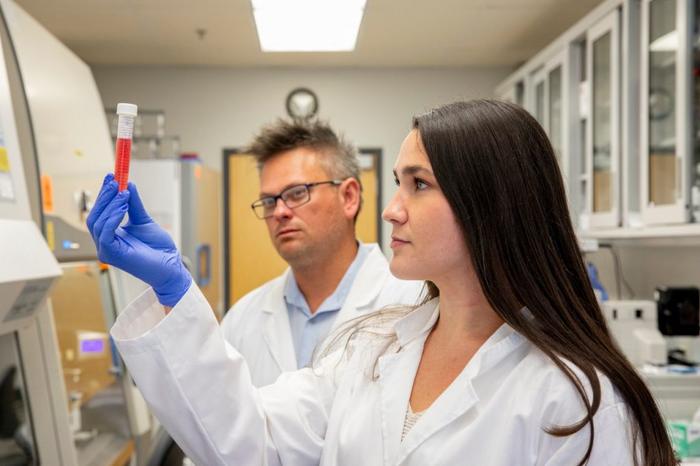An estimated 1,200 Americans, on average, are diagnosed with Lyme disease each day. Some of those patients continue to experience negative effects, even after treatment.

Credit: Virginia Tech
An estimated 1,200 Americans, on average, are diagnosed with Lyme disease each day. Some of those patients continue to experience negative effects, even after treatment.
Lyme disease researcher Brandon Jutras, associate professor in the College of Agriculture and Life Sciences and affiliated faculty of the Fralin Life Sciences Institute, recently received a $2.7 million grant from the National Institute of Allergy and Infectious Diseases, part of the National Institutes of Health, to study what causes the disease to linger long after treatment.
“Using a series of sophisticated molecular techniques, in combination with both bacterial and host genetics, we’re working to understand why and how some patients respond to therapy, while others do not,” said Jutras, the lead investigator in the Department of Biochemistry and an affiliate faculty member in the Center for Emerging, Zoonotic, and Arthropod-borne Pathogens. “Our two-pronged approach looks at this problem from both sides: What unique chemical features of the bacterium’s cell wall are responsible for causing symptoms and what genetic factors from the host-response side play a role in sustained pathology”.
Previously, Jutras discovered that:
- The disease-causing agent sheds part of its cell wall into its environment.
- This molecule can be detected in patients’ months after antibiotic treatment.
- The bacterium that causes Lyme disease has a highly unusual modification in its protective molecular bag that allows it to move easier.
- And that the cell wall alone is capable of causing symptoms similar to those experience by patients.
This research builds upon the previous discoveries and will determine what about the cell wall makes patients sick and define new strategies, such as monoclonal antibody therapy, to improve Lyme disease patient health when previous treatments have failed.
“We recognize this is an issue and that patients have these long-term symptoms, but we don’t know why,” said Mecaila McClune, who is a key member of the research team and a graduate student in the Jutras lab. “This is what my research is trying to determine what’s going on and how we can treat the persistent effects of the disease, which will improve quality of life going forward.”
These new studies were facilitated by earlier support from the Global Lyme Alliance and Bay Area Lyme Foundation and continue an active collaboration with GlycoMIP, and both the University of Virginia and the Medical College of Wisconsin.




